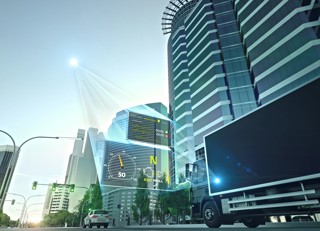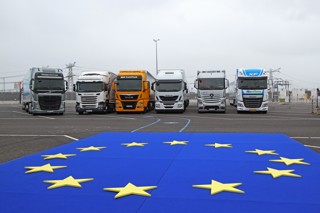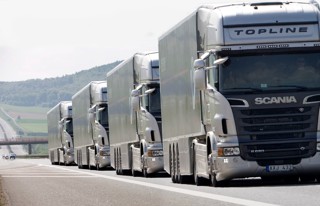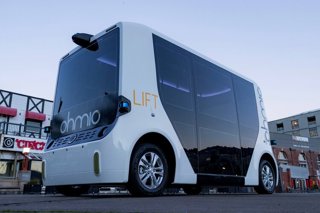More than three-quarters (76%) of transport companies expect autonomous trucks to be a viable option within the next decade, according to research by IRU.
The survey of 450 transport companies across Europe, the Gulf Cooperation Council and Asia by the world road transport organisation found the 29% thought they will be a reality on the roads in the next five years.
Transport companies believe the primary benefit of automation will be boosting productivity (50%), followed by helping to cut costs (19%).
Barriers to adopting technology persist – with transport companies citing the major challenges to adopting technology driven innovation as cost and investment (71%), followed by a limited understanding of the range of emerging technologies available (50%).
Boris Blanche, IRU’s managing director, said: “There is no question that autonomous trucks will eventually be transformative for the industry – helping boost productivity, create efficiencies and enhance driver working conditions.
“But drivers will not become obsolete any time in the future, and in fact the industry must continue to encourage more drivers into the profession.
“Proper and responsible adoption over time is required, and we must see full cooperation from all industry stakeholders.”
The survey also found that the majority (57%) view geopolitical uncertainty as the biggest threat to their development – from escalating international trade wars to growing concerns around Brexit.
The risk of global recession and the challenge of keeping up with changing customer demand are jointly seen as the second biggest threats to transport companies at 52%.
Umberto de Pretto, IRU’s secretary general, said: “The global transport system touches the lives of each of the planet’s seven billion people, from the food we eat to the consumer goods we buy.
“So it’s perhaps not surprising that many of the issues facing society today are also considered by transport companies to be their biggest challenges.
“These include some of the main themes that dominate the international agenda, including geopolitics, trade and the environment.”



















Login to comment
Comments
No comments have been made yet.